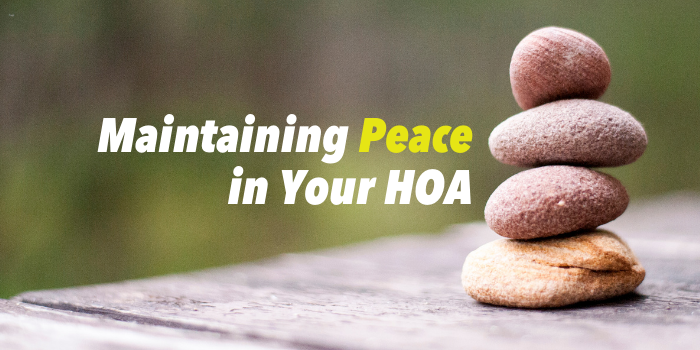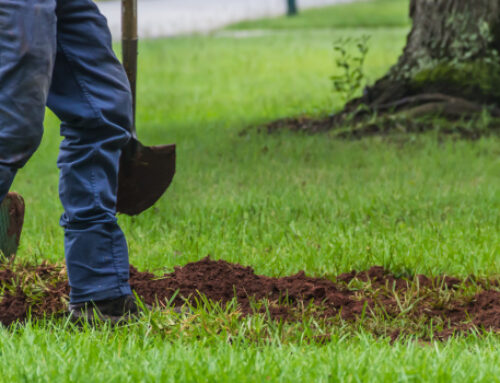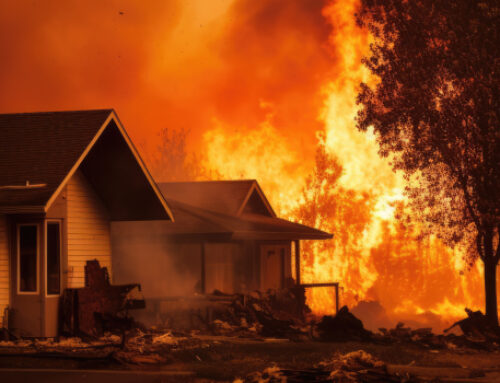Our goal with each of our partner communities is to create a fantastic environment in which to promote peaceful communities. As witnessed in the media this year, peace can be disrupted at any time. We want to prepare you for possible disruptions, while hoping for tranquility.
Because 2020 has been unpredictable, we cannot rule out that the upcoming election will likely result in more demonstrations and conflict, especially for those residing in large metropolitan areas.
You may have already experienced or witnessed some form of unease within your own community this past year, or know someone who has. In this politically tense and unusual election year climate, now might be a good time to review the association’s policies relating to political signage, social media, and conflict resolution.
Political Signage
It’s not uncommon for neighbors to display political signs during an election, and each state has specific laws that protect a citizen’s right to do so.
In Texas, HOAs must allow homeowners to display political signs relevant to any current election 90 days prior to, and for up to 10 days after the election, as stated in Texas Election Code 259.002. HOAs are permitted to limit homeowners to one sign for each ballot item or candidate and may require that political signs be mounted in the ground.
In Arizona, HOAs may regulate the number of political signs a homeowner can have on their property, provided there is a local ordinance that regulates the number of political signs allowed on residential property. A.R.S. 33-1808 further allows regulations as to the size of these signs.
Disallowed signs are any signs that contain plants, balloons, lights, roofing material, or other such materials. Also disallowed are signs that measure larger than 4’x6’, are painted onto architectural surfaces, threaten public health or safety, violate the law, are distracting to drivers (such as through noise, streamers, music, etc.), or contain offensive language or images.
While HOAs may regulate these items under state law, associations should be aware that they still need to have or adopt rules concerning political sign to make such sign regulations enforceable. It’s important to make the distinction that candidates and ballot items are protected, while social or political movements and slogans are not.
Reference your HOAs existing CC&Rs; most include a section regulating signage. If you’re in Texas, reference Texas Property Code 202.009. For our boards in Arizona, reference Arizona Revised Statute 33-1808.
At Spectrum we encourage discourse and expression. We encourage associations to error on the side of free speach, as long as your decisions are consistent and align with your documents and the law.
Social Media
Social media has dramatically increased the speed in which we now communicate. While it can be very beneficial, social media can also be dangerous.
In a recent study reported by Allied Universal Risk Advisory and Consulting Services, social media has increased the speed in which protests materialize. Influencers have proven how quickly they are able to create situations and mobilize demonstrators.
Social media has a unique ability to bring people together, and it is being used to communicate and disseminate information and coordinate plans using key phrases or words to create a trending topic which allows easy access to current information. In a nutshell, news spreads like wildfire, and those who are discontent are now (more than ever) able to very quickly get the attention of many.
While the board cannot control what any homeowner or community member posts on their own social media, the board can define standards as to how social media should be used to communicate information pertaining to the association and local events. For this reason, it’s best to review and communicate your association’s social media policy.
The HOA’s social media strategy should:
-
- Outline the HOA’s policy. Protect your association from the pitfalls of social media and increase effectiveness by considering the audience and the association’s set standards.
- Define objectives. Defining objectives is crucial to provide direction for all future content creation. Consider what the HOA would like to accomplish with social media and go from there.
- Consider various platforms. Most HOAs find Facebook groups an effective means of keeping everyone up-to-date on community news and activities, but there are multiple other platforms available today. Not all social media platforms are created equal; some are more geared toward youth, some toward business, etc.
- Be knowledgeable of the law. Confidentiality is a must! Ask yourself if it’s necessary, or even appropriate, to share something. Remember that everything you do and say on social media is permanent, even if you delete it. Consider the audience, the tone, copyright laws, plagiarism, emotional distress, violating privacy right, and other factors that could arise from a post.
When Conflict Arises
The best way to manage conflict is to prevent it, but that’s not always possible. However, by running association meetings and community events, as well as making rulings according to the governing documents, the board acts in a preventative manner.
Manage
Avoid having any homeowner accuse the board of violating their First Amendment rights by working with all residents in a respectful and civil manner. Always take the opposing party’s rights into consideration and remain calm and collected. Reference the association’s CC&Rs and do your best to help the homeowner understand the rules the board is obligated to enforce.
Defuse
There may be times when, no matter how reasonable the board acts, conflict will arise. Do not dismiss peoples’ concerns or objections just because the board followed the rules. Respect is shown when you hear people out. By listening in a respectful manner, you are more likely to defuse tension before conflict gets out of hand.
Resolve
If your board finds themselves in a difficult situation, remember that it is your legal obligation to protect the community. The HOA is a non-profit organization whose goal is to protect the property value of its homes, not a body of government or a public forum for solving political problems. Understanding this, it’s best to be fair, communicate openly, and be knowledgeable of the law. Never remove a sign by force, threaten force, or post derogatory remarks or any remarks that may be deemed as threatening in nature, regardless of your political opinions!
Remember, 2020 has brought new fears and anxieties for many citizens. Some community members may be reacting out of that fear or experiencing higher levels of stress, anxiety, or panic. Tension is already high. After all, there is nothing usual during a pandemic during an election year! Be cognizant of people’s current mindsets.
When faced with conflict or civil unrest, board members (as community leaders) may find themselves playing a critical role in restoring peace and safety to the community. In order to do this, the board must be ready to implement strategies that diffuse tension while protecting the rights of all involved. If a situation escalates to the level of violence or aggression, board member(s) will have to think quickly to determine the gravity of the situation. Because the board is tasked to act reasonably, this could mean involving local authorities. Never place yourself or any other member in harm’s way and remember that the HOA could be liable for actions taken (or not taken) during an escalated event.
If you have concerns about a situation arising in the coming days, consider hiring security (if your HOA doesn’t already utilize a security service) and/or consult with your association’s legal counsel for their recommendations.
At SpectrumAM, we are closely monitoring the situation and, should major unrest occur, we are prepared to close our remaining open front desks in affected areas, postpone or cancel site drives to avoid placing staff at risk, and instruct all employees in those areas affected to work from home until further notice.
Please bear in mind that it may be necessary to cancel or delay meetings to avoid placing staff on the road. The safety of our board members, homeowners, and employees is of utmost concern. We will check in frequently with our board members to keep a pulse on the local situation in your area. Stay safe!







